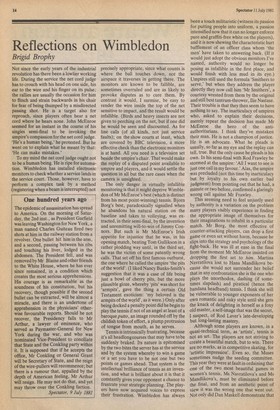One hundred years ago
The epidemic of assassination has spread to America. On the morning of Saturday, the 2nd inst., as President Garfield was leaving Washington for New York, a man named Charles Guiteau fired two shots at him in the railway station from a revolver. One bullet hit him in the arm, and a second, passing between his ribs and touching his liver, lodged in the abdomen. The President fell, and was removed by Mr Blaine and other friends to the White House, where he has ever since remained, in a condition which creates the most serious apprehensions. His courage is as remarkable as the soundness of his constitution, but his recovery, though possible if the second bullet can be extracted, will be almost a miracle, and there is an undertone of apprehension in the physicians' otherwise favourable reports. Should he not recover, the Presidency falls to Mr Arthur, a lawyer of eminence, who served as Paymaster-General for New York during the war, and who was nominated Vice-President to conciliate that State and the Conkling party within it. It is supposed that if he accepts the office, Mr Conkling or General Grant will be Secretary of State, and the reign of the wire-pullers will recommence; but there is a rumour that, appalled by the depth of American feeling, Mr Arthur will resign. He may not do that, and yet may throw over the Conkling faction.
Spectator, 9 July 1881


































 Previous page
Previous page